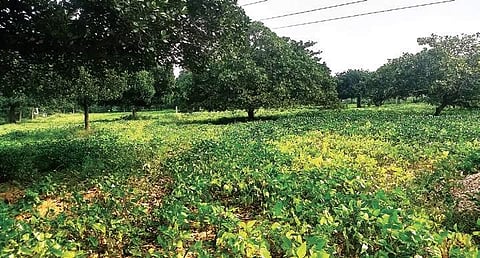

KOCHI: To breathe life into the ailing cashew industry, which provides livelihood to nearly 3 lakh women belonging to the marginalised sections of society, the Kerala State Planning Board is currently finalising a workable business model.
The proposal, submitted by the Cashew Export Promotion Council of India (CEPCI), includes recommendations to reduce processing cost, restructure existing loans of processing units, provide fresh loans to reopen them and provide government support for mechanisation.
Once a symbol of prosperity, the cashew industry plunged into crisis after trade unions resisted mechanisation and processing charges spiralled. It forced as many as 700 private processing units to down shutters, leaving around 1.5 lakh workers jobless. With Vietnam growing in stature as a hub and high processing charges denying the edge in competitive pricing, the industry went on a downward spiral. Even public sector units like Capex and Kerala State Cashew Development Corporation (KSCDC) incur a loss of Rs 2,500 for processing a bag of cashew. Many big names in the industry have shifted base to Tamil Nadu, Andhra, Karnataka and Odisha to sustain their business.
“We’ve submitted the project proposal to the Chief Secretary and the Planning Board. We had a preliminary round of discussion with the Board and two more rounds will be held. The Chief Minister and Minister for Cashew Mercykutty Amma are very supportive and if the banks can be convinced to restructure loans, we can revive the closed units. The government has been providing Rs 160 to the coir workers under the income support scheme and if it a similar support of say Rs 100 can be given to the cashew workers, we’ll be able to provide them a wage of Rs 500,” said CEPCI chairman R K Bhoodes.
Cashew Export Promotion Council of India’s (CEPCI) proposal includes steps to bring down processing cost to Rs 1,300 per bag by introducing mechanisation and increasing production of cashew nuts. The units in Kerala source nuts from African countries, but they are now concentrating on setting up more processing facilities. It has led to decrease in availability of raw nuts in the international market.
“The industry demands government help to influence the banks to provide relaxation in NPA norms. The promoters should be allowed to opt for a revival scheme or one-time settlement. The banks should write off 50 per cent of the normal interest and penal interest levied on the principal amount. An over draft facility of 33.33 per cent should be provided as working capital term loans,” said R K Bhoodes.
Planning Board Technical Chief N R Joy said, “We are working on a viable business model to sustain the industry. The government is keen to revive the cashew sector as it’s the livelihood of around 3 lakh people. The Union Government had provided a package for revival of the textile sector. There’s a proposal to avail of a package from the budget allocation for micro and small industrial units.” “We have to explore the possibility of enrolling the cashew workers under the National Rural Employment Guarantee Scheme. The state government can share the fringe benefits like EPF, ESI and holiday wages of the workers. The industry has sought a 50 per cent investment subsidy for automation and process mechanisation. Another proposal is to declare the cashew industry as sick. The government can recommend the Centre to restore export incentive, withdraw import duty on raw cashew nuts and seek a ban on import of finished cashew kernels,” said Joy.